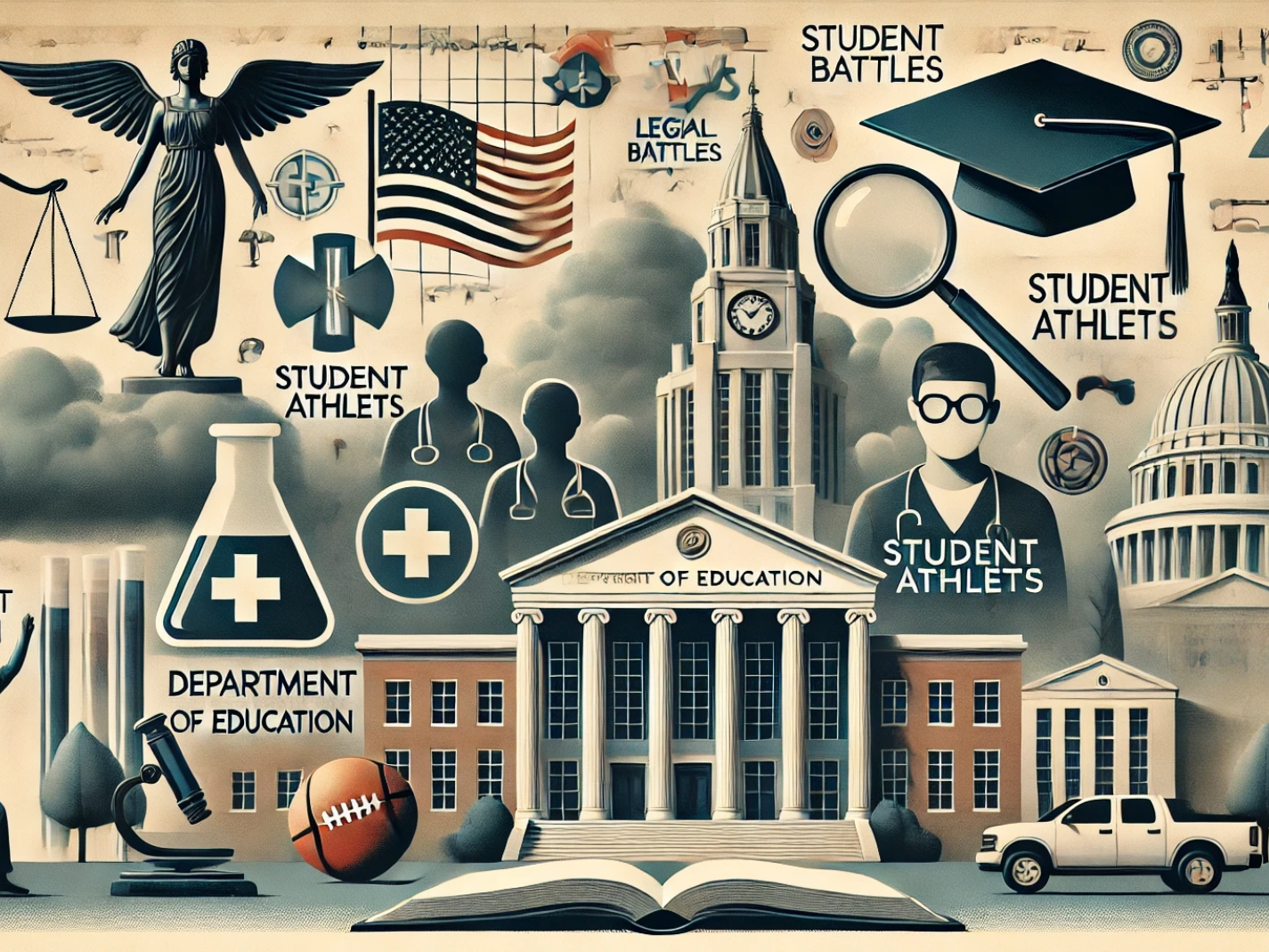
Author’s Note: This excerpt is from my weekly “Top of Mind” email, sent to subscribers every Thursday. For more content like this and to receive the full newsletter each week, sign up on Minding the Campus’s homepage. Simply go to the right side of the page, look for “SIGN UP FOR OUR WEEKLY NEWSLETTER, ‘TOP OF MIND,’” and enter your name and email.
There’s much at the top of my mind.
First up, the post-election circus keeps rolling. I wasn’t shocked when a University of Oregon admin told conservatives to kill themselves. But his hot take on people voting for Trump over high grocery prices? Pure gold. The new liberal wisdom, folks: work harder! “If you are so sad about your groceries being expensive, get a better f*****g paying job. Do better in life,” he ranted passionately, alone in his car, straight into his phone’s camera. I thought bootstraps were something only conservative Boomers clung to?
Anyway, the hysteria has trickled down to the K-12 sphere, as the New York Times reported that New York’s Ethical Culture Fieldston School excused students who were “too distressed” by the election. Not to be outdone, Harvard’s campus remains in turmoil, with faculty and law students staging “study-ins” reading George Orwell’s 1984 while brandishing slogans like “Israel is burning people alive.” As Steven McGuire points out in this week’s top article, these protests are less about free speech than using academic spaces to provoke the university into taking a political stance.
As for other MTC hits, interns Jessi Wynn and Hannah Hutchins are digging into less covered stories. Wynn reports on arrests among student-athletes, with disturbing trends in sexual assault, drug use, and DUIs. She questions athlete character and recruiters’ effectiveness in screening for red flags. Hutchins reports on Brigham Young University’s (BYU) plan to launch a Christian medical school—the first in the American Southwest and only the seventh in the United States. This faith-based school will center on patient care, the sanctity of life, and service to underserved communities, in contrast to secular programs, she says.
David Porter, a frequent MTC contributor, shared his story on Veteran’s Day—a life marked by service, intellectual rigor, and resilience. During a distinguished 34-year Air Force career, he earned multiple degrees, served as a rescue pilot, and helped define the Air Force’s core values of Integrity, Service, and Excellence. Later, as provost and psychology professor at Berea College, his leadership improved graduation rates and supported accreditation efforts. But his commitment to intellectual diversity clashed with campus politics, leading to Title IX accusations and dismissal amid what he describes as a disregard for due process. While the military upholds standards of honor, he says, higher education is increasingly compromised by ideology over integrity.
MTC contributor Suzannah Alexander’s piece on accreditation is also worth a read. She examines how accreditation—a system originally meant to uphold educational quality—has become a vehicle for enforcing ideological conformity, particularly through “diversity, equity, and inclusion” mandates. Once a safeguard for academic standards, accreditation now often promotes divisive social justice ideologies while maintaining control over billions in federal funds without oversight. She argues that this shift makes the need for reform urgent if we are to restore academic integrity and transparency. We can expect more from Alexander in the coming weeks.
MTC readers should check out Julie Smitherman’s gem on RealClear Education—yes, I’m suggesting another site; don’t tell my boss. Her piece shines a light on the economic confusion plaguing high school seniors. Nearly 60 percent of future college freshmen lack basic economic literacy, and most states don’t even bother to require it. Smitherman argues for boosting economic education with free resources, like those from the Federal Reserve. I’m with her on that, but I must stay out of the K-12 maze—besides, I covered personal finance earlier this year.
Onto other matters.
The Ninth Circuit Court recently ruled in favor of Grand Canyon University (GCU), affirming its nonprofit status. The court found that the Department of Education (ED) had unfairly applied stricter standards to the Christian institution. This ruling could ease GCU’s battle against the ED’s $37.7 million fine, which was imposed last year for allegedly misleading students about the costs of its doctoral programs—a case I discussed with you then.
As for the ED, Trump is promising to eliminate it. And his promise is getting traction, with state lawmakers debating whether the ED’s federal overreach justifies its dismantling. Republicans say yes, Democrats say no—surprise. What all legislatures in the country should be aware of, however, is the ED’s abysmal track record. From mishandling student loans and FAFSA applications to overseeing a shady accreditation system and ignoring foreign influence, the ED is nothing but trouble. In my mind, any effort to eliminate it is one I can get behind.
But I’m approaching this promise with a healthy dose of skepticism. Yes, there’s room for reform—as I’ve said—but you must keep in mind that we’re working with legislators who have greenlit your tax dollars for drag shows in Ecuador, studies on seat belt effectiveness in Ghana, and preserving Parisian butcher slang. So, the idea of accomplishing something as shockingly practical as eliminating the ED feels like a moonshot.
Follow Jared Gould on X
Image created with ChatGPT: I asked it to generate a collage based on the themes in my essay, and this is what it produced.

Call me cynical, but I suspect that the reason why colleges cancelled classes the day after the election was that they had a pretty good idea of the outrageous things that their professors would lkely say, and didn’t want .mpgs of that showing up on YouTube.
Do not forget that Eisenhower created ED as part of HEW back in the 1950s.
All Carter did was split HEW into H&HS and ED/